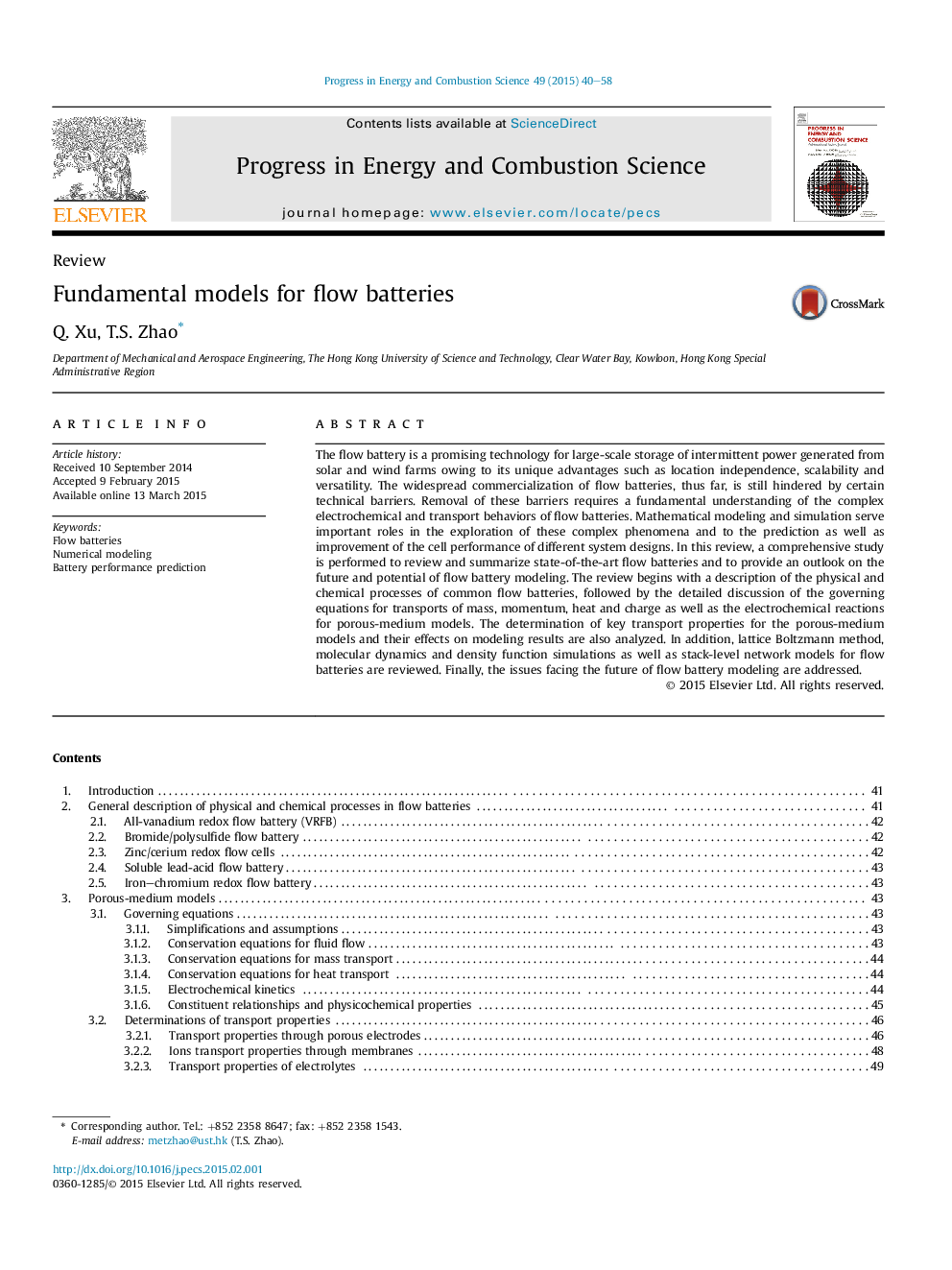| Article ID | Journal | Published Year | Pages | File Type |
|---|---|---|---|---|
| 241652 | Progress in Energy and Combustion Science | 2015 | 19 Pages |
The flow battery is a promising technology for large-scale storage of intermittent power generated from solar and wind farms owing to its unique advantages such as location independence, scalability and versatility. The widespread commercialization of flow batteries, thus far, is still hindered by certain technical barriers. Removal of these barriers requires a fundamental understanding of the complex electrochemical and transport behaviors of flow batteries. Mathematical modeling and simulation serve important roles in the exploration of these complex phenomena and to the prediction as well as improvement of the cell performance of different system designs. In this review, a comprehensive study is performed to review and summarize state-of-the-art flow batteries and to provide an outlook on the future and potential of flow battery modeling. The review begins with a description of the physical and chemical processes of common flow batteries, followed by the detailed discussion of the governing equations for transports of mass, momentum, heat and charge as well as the electrochemical reactions for porous-medium models. The determination of key transport properties for the porous-medium models and their effects on modeling results are also analyzed. In addition, lattice Boltzmann method, molecular dynamics and density function simulations as well as stack-level network models for flow batteries are reviewed. Finally, the issues facing the future of flow battery modeling are addressed.
